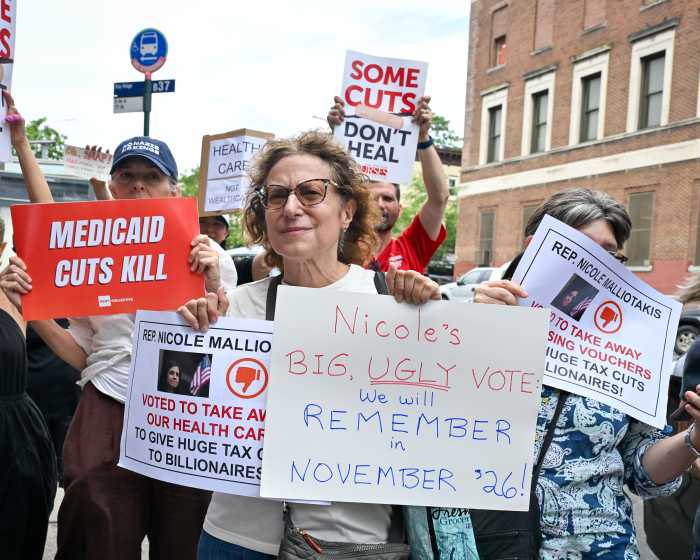Those all-white memorial bikes scattered across the borough may have a new lease on life, after talks between “ghost bike” supporters and the city appear to have led to a compromise that would spare the memorials from new rules designed to rid the streets of “derelict” two-wheelers.
Sources told this paper that the Department of Sanitation is finalizing a new set of rules that would allow ghost bikes to be removed by the police if they are so run-down that “they pose a danger to pedestrians.”
Initially, the city intended to consider ghost bikes automatically “derelict” and suitable for trashing, but a group of activists, a community board and Assemblyman Joe Lentol (D–Williamsburg) rallied to prompt the change that would allow the department to remove bikes only if they are falling apart.
“We’re pleased that the [department] took into account all of the responses of the community and the families of those bikers who were killed,” said Leah Todd, spokeswoman for the NYC Street Memorial Project, which erects the memorials. “It’s good to see that these families’ voices were heard.”
The Department of Sanitation “won’t confirm or deny” the new policy, but sources close to the process said that the department will take all of the language regarding ghost bikes out of the proposed rules.
The new ghost bike laws would essentially give police the same power that they have now over dangerous bikes, which is to remove them upon request, complaint or imminent danger. Plus, the rules take away the Department of Sanitation’s role in removing the memorials.
Still, abandoned bikes are getting so bad in neighborhoods like Williamsburg and Carroll Gardens that cops have launched their own campaigns to remove them. Police have long said that removing bicycles should only fall under their jurisdiction if they pose a threat to pedestrians on the sidewalk, but heaps of metal and rubber in those neighborhoods have led precincts to all-out crackdowns.
The proposed rules — without the ghost bike verbiage — aim to put that responsibility back into the city’s hands.






















